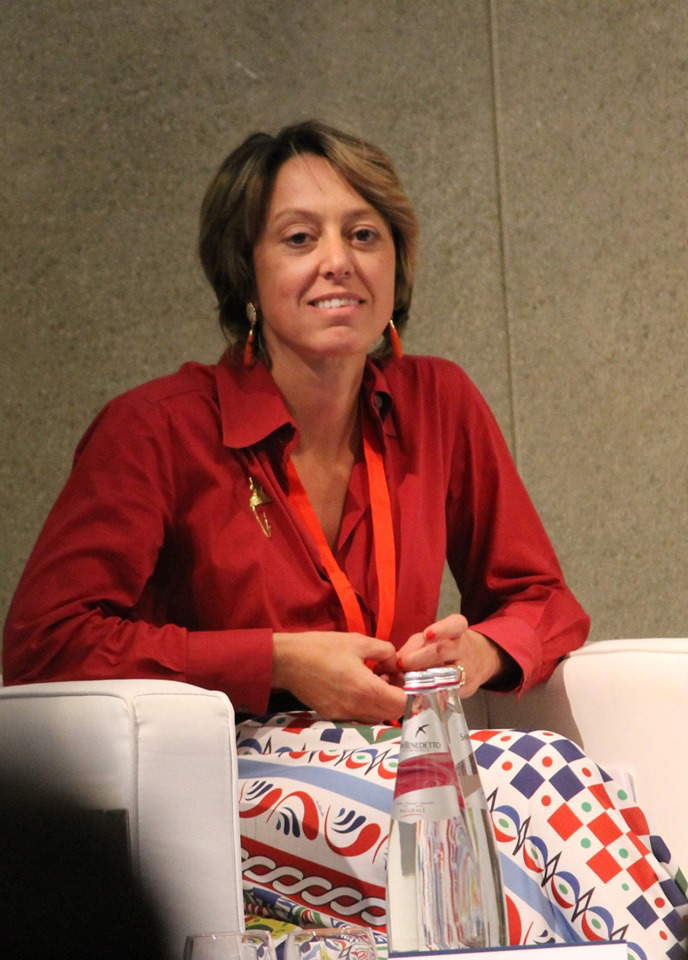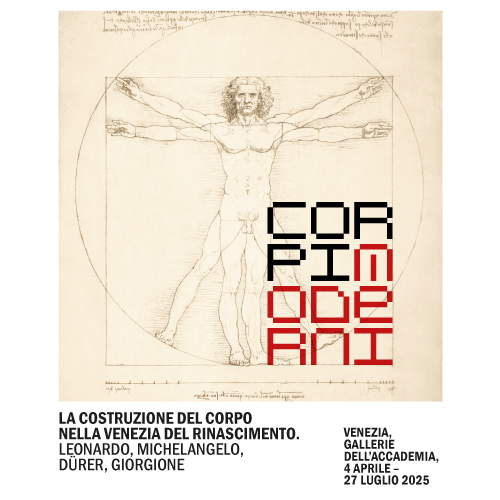To grow, we need to invest in culture: our heritage exists because someone spent on it. Francesca Velani, LuBeC director, speaks.
Heritage and innovation: these two words could be used to sum up the LuBeC - Lucca Beni Culturali exhibition, which for the past fifteen years has brought to Lucca the most advanced products and practices dealing with topics such as technology, digitization, sustainability, participation, and research for cultural heritage. In this 2019, LuBeC reaches its fifteenth edition, held on October 3 and 4, as usual at the Real Collegio di Lucca. We interviewed Francesca Velani, Director of LuBeC and Vice President of Promo P.A. Fondazione (which organizes the event), to draw an initial balance of this important two-day event, from which many insights always emerge that will go on to shape Italian cultural policies. The interview is by Federico Giannini, editor in chief of Finestre sull’Arte.
 |
| Francesca Velani |
FG. Dr. Velani, how did this edition of LuBeC go?
FV. The balance is definitely positive: this year we registered a wide participation of operators and institutions. The presence of the Ministry of Cultural Heritage and Activities and Tourism (present in the figure of the chief of staff Lorenzo Casini and other important exponents), as well as that of the Ministry of Foreign Affairs, accredited the event as an important moment for the definition of the country’s policies: Of course, for us this is a fundamental aspect, because the effort we make to bring together more than two thousand people in two days has as its objective to make the territories talk to the center on the one hand, and businesses talk to the public sector on the other. And this year, the goal was fully achieved thanks to an important representation from both the private and public worlds. LuBeC’s biggest challenge is precisely to try to make sure that the good practices that come from the territories (because innovation comes from below) become models: this is our challenge, which we fight every day. On a daily basis, Promo P.A. Foundation works with territories and its partners to do this, that is, to show how actions that have sprung up perhaps spontaneously in territories can become replicable models, but above all they can become policies. We have to make policy: “policy” is a beautiful word, and we have to say it many times in a positive way because, through policy, we have to transmit the values of this country.
And speaking of policies, from this two-day event what could be one of the most important suggestions that LuBeC sends to MiBACT?
I will mention one that I think is of great importance: we have received confirmation that the call for the Italian Capital of Culture will restart. I would be pleased to open a discussion with the ministry to update the evaluation parameters of the call, including the important issues of sustainability within it: so yes to tourism, yes to innovation, but yes also to sustainability. Indeed, a very significant point should be emphasized: the call for the Italian Capital of Culture can help us win an important challenge, that of long-term projects.
What do you think is the importance of a project like the Italian Capital of Culture?
Theimportance lies above all in the path that the cities take: this call for proposals makes the cities get around a table together with the territories, institutions (such as the region or neighboring municipalities), private individuals, and associations. And all these actors plan together, on a cultural basis. If there were no structure like the Italian Capital of Culture, they would not do this: because, in the minds of administrations, culture is still not perceived as an element of strategic planning. Instead, the statements of all international level stakeholders (I am thinking of the European Agenda for Culture, the 2030 Agenda for Sustainable Development, the Expo 2020 in Dubai whose theme will be Connecting Minds, creating the future) clearly tell us that culture is at the center and is the platform for growth. It means that we have to design on a cultural basis: but to do that we have to invest, put money into it. In Italy we keep saying that we have an extraordinary cultural heritage, but let’s remember that this heritage exists because someone invested in it, spent money on it. We have to do the same thing: create investments. The Italian Capital of Culture activates investments. Let me give an example: on Parma, which will be the Italian Capital of Culture in 2020, a path has been activated that can be defined as a truly public-private path, since the investments have been equally divided (4 million euros are public and 4 million euros are private). And these 8 million euros will generate a series of actions that are not only designed for 2020, but also look beyond it.
We mentioned Expo 2020 in Dubai, and this year the host country of LuBeC was the United Arab Emirates. What emerged from the meetings held here in Lucca?
The United Arab Emirates confirmed their intention to invest strongly in culture in Italy. For them, culture means education, so it means universities, research, technologies, content: the UAE needs to create a strong exchange, from the point of view of education, in order to cultivate their talents and, at the same time, they need to send people here to Italy in order to study to nurture themselves. For a few years now (there are statements about this going back to 2014), the UAE has been clearly stating that sooner or later oil will run out, and the day they sell the last barrel they must have invested so much in culture that they no longer have the problem of finding alternative economic models.
LuBeC has then always been an event that is very attentive to all things digital: this year what were the main innovations presented at the Real Collegio?
DefinitelyI think it is very interesting the theme of gamification, on which we have focused a lot for this fifteenth edition of LuBeC: however, there is to emphasize that, as far as we are concerned, the main aspect of gamification is not so much the game itself, but it is the technique of the game to help intercept audiences. Another novelty is the presence of titles, such as Finestre Sull’Arte itself, that are strong, reach an industry audience, bring quality and communication, and for us this is very important, because if we all grow, then the sector grows as well. The cultural heritage sector is one that needs to be nurtured in this way, that is, we need to grow the entrepreneurial system (these are the famous creative cultural industries).
And speaking of creative cultural industries, Cultural Heritage Minister Dario Franceschini, in presenting the guidelines of his ministry, made it known that precisely these industries will be a priority of the next government action. What needs to be done in this area?
It is necessary to create investment channels and dedicated investment funds, serious private equity funds that can allow a part of the entrepreneurial system to grow. At the same time we need to work a lot on the possibility of using cultural heritage: we are talking about images, content, texts, archives so that they can be used and transferred. Because then, if we wanted to give a definition of “creative cultural industry,” we could simply identify it as those who produce culturally based content: it goes from those who make books and publications to those who make communication, art, theater, singing, opera, pop or rock music, but think also of all that supply chain that feeds cinema, fashion, food. All of this can be defined as “creative cultural industries,” and it is a system worth 89 billion euros, influencing roughly more than 37 percent of tourism-related Gross Domestic Product. It is a growing sector, and it is the only system that has 1.5 percent employment this year.
A final question concerns the archives, to which LuBeC has devoted special attention this year, which seems to echo the attention that the minister has also promised to devote to these organs of the ministry. Organs that are somewhat at year zero, since for a long time they have been forgotten. What should we expect?
The ministry is preparing a very strong investment, from an economic point of view, on digitization: because archives are our memory. The theme is that of open data: that is, we need to make data available to everyone, to connect them, to enable the world to be able to read what is written in our archivesî. And this can only be done by digitizing: it is the raw material of any enterprise today, and therefore of any economy. In short, we know, economists tell us, that a territory that grows today is a territory that invests in culture and innovation. The most economically important territories, such as Silicon Valley for example, are territories that have chosen to make heavy investments in digitization, computerization and in training people. And with that comes growth.
Warning: the translation into English of the original Italian article was created using automatic tools. We undertake to review all articles, but we do not guarantee the total absence of inaccuracies in the translation due to the program. You can find the original by clicking on the ITA button. If you find any mistake,please contact us.




























